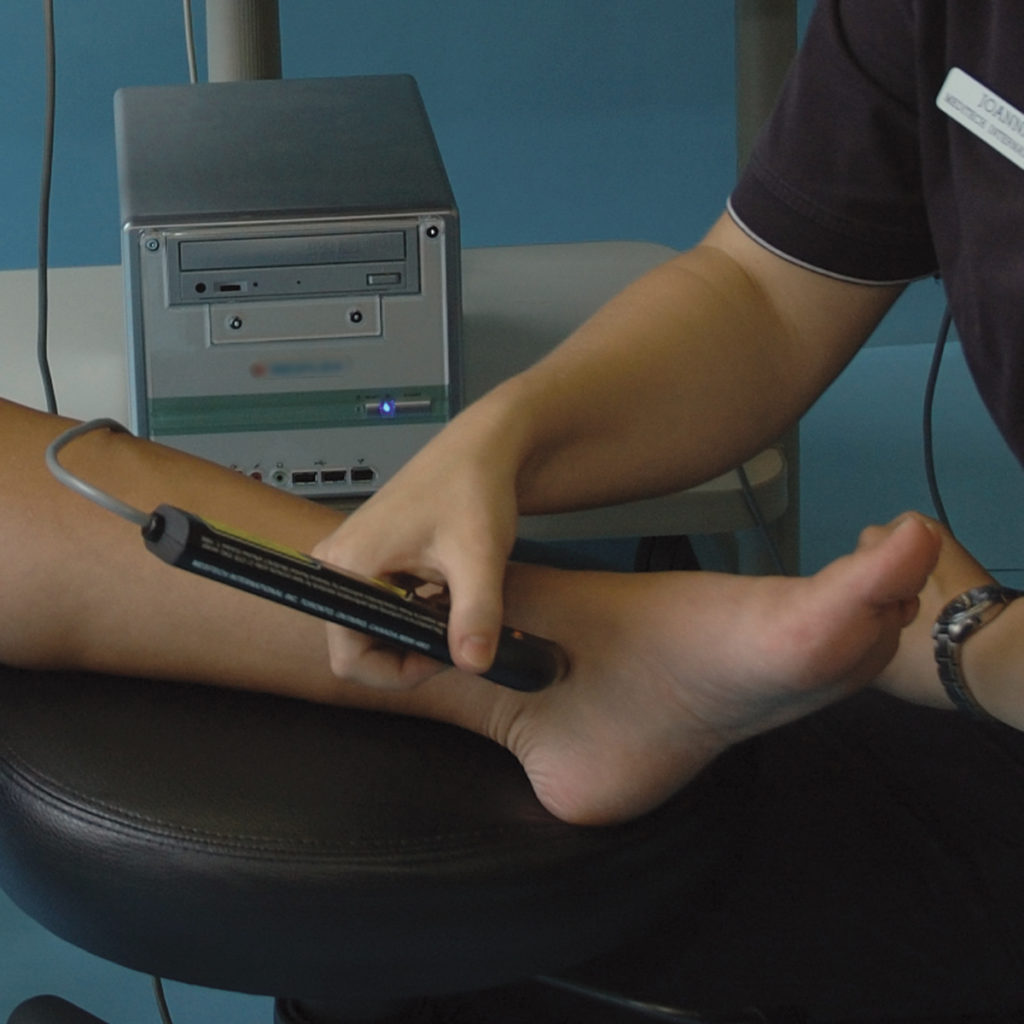Peripheral Neuropathy, like many other nervous system conditions, can be difficult and frustrating to diagnose. Its symptoms usually present in the hands and feet but can be as mild as cold hands or tired feet. If you work in a cold office or stand for long periods these warning signs could be easily overlooked as just day-to-day inconveniences of your normal life. Symptoms can also be more severe, causing shooting pains, burning, or balance issues leading to falling.
According to the National Institute of Neurological Disorders and Stroke, more than 20 million people in the United States have been estimated to suffer from Peripheral Neuropathy in one form or another. It’s very likely that this number is actually much higher though since many go undiagnosed every year.
What is Peripheral Neuropathy?
Peripheral Neuropathy is a disease that presents with pain, numbness and tingling in the feet or hands due to dysfunction of the peripheral nerves in those areas. Peripheral nerves are nerves that are located outside of the brain and spinal cord.
Your peripheral nerves communicate with the rest of your body, sending sensory information like hot and cold signals or pain messages. This is why when these nerves become damaged, the signals sent to your central nervous system can become confused. Think of it like the phone game when we were kids. The message starts as, “Sally sells seashells.” But could end up as, “Soy sauce needs helps.” When this happens with peripheral nerves, the message starts as, “my hands are cold” but could end up as, “my hands are burning.” Or even something like, “the soft sheet is touching my feet in bed.” And end up as, “a thousand hot needles are stabbing my feet.” These are just a few examples of the hundreds of types of Peripheral Neuropathy.

What are the Symptoms of Peripheral Neuropathy?
Most people with Peripheral Neuropathy initially notice pain, numbness, and tingling in their toes or fingers that gradually travels up the extremity toward the body. This is different than sciatic pain from the spine which typically travels away from the body and down the extremities. Many people with Peripheral Neuropathy notice increased symptoms at night, while others suffer constant symptoms no matter what time of day or what they do.
Peripheral Neuropathy symptoms may include but are not limited to:
– Pain, numbness, and tingling in hands, fingers, toes, and feet
– Sharp, jabbing, burning, or throbbing pain in hands or feet
– Sensitivity to touch
– Loss of balance
– Muscle Weakness
– A sensation that you have an elastic band on your hands/feet
– Pain, numbness that spreads from hands/feet up extremities toward the body
What are the Causes of Peripheral Neuropathy?
Finding the causes of Peripheral Neuropathy can be equally as frustrating as diagnosing it. In general, most Peripheral Neuropathy is due to nerve damage, abnormal nerve transmission or firing, and end-line circulation issues. The cause of this damage, dysfunction or issues though is a bit more elusive. In medicine, when a reason can’t be found for the cause of a condition, this is called idiopathic.
Idiopathic – is arising spontaneously or from an obscure or unknown cause. The term idiopathic is often used to describe a disease with no identifiable cause.
While many cases of Peripheral Neuropathy are idiopathic, some common and easier-to-target causes are due to Diabetes and toxicity. We’ll address each individually.
Peripheral Neuropathy for Diabetics is all too common. Referring again to the National Institute of Neurological Disorders and Stroke, roughly 60 – 70% of people with diabetes have some form of Neuropathy. This is why you rarely meet a diabetic who skimps on their regular foot exams. Foot exams ensure proper blood flow, nerve function, and skin health. The American Diabetes Association recommends speaking with your doctor about electromyography (EMG) if you feel that you may have nerve damage on your feet. This test checks how your nerves and muscles work together.
Toxicity from a number of things can cause damage to the nerves, resulting in Peripheral Neuropathy. Some types of chemotherapy drugs used to treat cancer have been known to cause this unfortunate side effect. This is referred to as CIPN – Chemotherapy-Induced Peripheral Neuropathy. While not all chemo will cause CIPN, it’s estimated that up to 30 – 40% of recipients of certain chemotherapy treatments are saddled with this extra inconvenience. For a full list of the types of drugs known to cause Peripheral Neuropathy in cancer patients, check out the American Cancer Society’s page on CIPN.
Other types of toxicity come from things like kidney and liver disorders, infections of various kinds, auto-immune diseases, hormone imbalances, nutritional or vitamin imbalances, and lastly alcohol abuse.
What are the Treatments for Peripheral Neuropathy?
In keeping with the theme of being a frustrating disease for both patients and medical professionals, Peripheral Neuropathy doesn’t have very many successful treatments, mostly just band-aids. Typical treatment is pain management usually with prescription medications like Gabapentin, Neurontin, or Lyrica. These drugs may help symptoms of pain, but relief is often short-lived, and the Neuropathy still tends to progress. Like most prescription medications, these drugs each also come with lists of side effects that require other drugs to counteract.
Each type of Neuropathy has a different cause and therefore can require different types of treatment to improve the outcome.

There is Hope for Your Peripheral Neuropathy
Here at LaserTech Pain and Back Relief Center, we aim to target the cause of your Peripheral Neuropathy pain. We do not treat with any addictive medications that leave you with a list of side effects to combat. We offer only non-invasive, drug-free treatments. If you’ve tried pain management without the relief you’re looking for, you can come in for our free consultation where we’ll work together to determine the specific cause of your Neuropathy and provide you with an individualized treatment plan that addresses each of the causes.




